#pollinated
Text
Baby Cherries

If everyone had fruit trees the world would be a sweeter place
2 notes
·
View notes
Text

Die MalvenBlüte gab ganz schön hellen Staub ab...
0 notes
Text
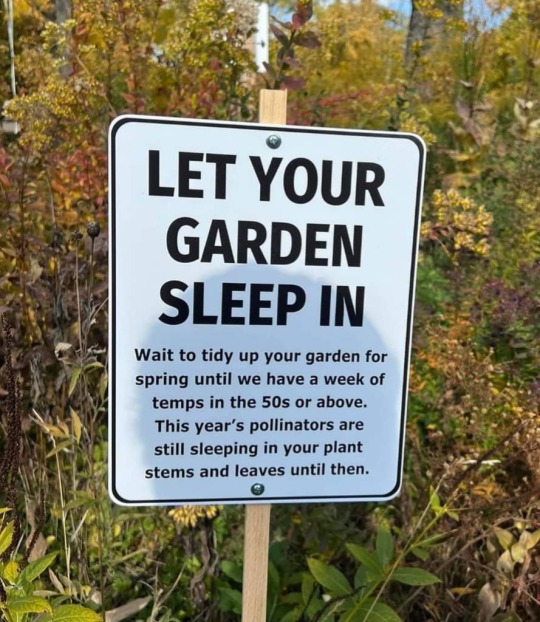
Let your garden sleep in. For the pollinators.
42K notes
·
View notes
Text


margarida.sa.maia
#meadows#wildflowers#gardens#pollinators#nature#ecologicalgardening#biodiversity#wildlife friendly gardening#rewilding#ornamental grasses#curators on tumblr
2K notes
·
View notes
Text
Seems like all the things people say are "missing the point" or "not doing enough" about saving pollinators, actually are doing some good.
Like No Mow May and leaving your lawn weeds alone, sure it's important to be planting species native to your area, but cosmopolitan lawn weeds like dandelions are actually really important for pollinators even in areas where they're not native. Gas powered lawn mowers put out a shit ton of CO2, way more per hour of use than cars, and the other air pollutants caused by lawn mowers are bad for us, so it's great to cut down on lawn mowing any way possible.
And on top of all that, a month of not mowing gives enough time for wild flowers to start growing where they couldn't before, so if you participate in no mow may, you might not NEED to plant native flowers because you might already have them
same thing with "save the bees" and focusing on honeybees, the pesticides that are affecting honeybees are also killing our native pollinators, so it will benefit them all to stop spraying.
people getting into beekeeping is good, even though honey bees aren't the ones endangered, it shows people how they are in symbiosis with other life forms.
And I'm reading a book about beekeeping, cause dad wants to keep bees, and the book says if you keep bees you will have to talk to your neighbors about pesticides and how they will harm the bees. That is a benefit to the whole ecosystem if someone is educating the people around them about the harms of pesticides
On top of that, more people are experiencing firsthand that honey comes from bees and consequently, understanding that insects aren't just scary and bad, and when they see a bee maybe they won't feel threatened and want to destroy it but instead think "oh yeah that is my friend that gives me delectable treats"
It is recommended to offer your neighbors honey from your hives. If they put pesticides on their flowers, they will put poison in the honey they were promised, if they get any honey at all
2K notes
·
View notes
Text

Adult wasps love sweet sweet nectar, while their larva need MEAT! Happy pollinator week!
12K notes
·
View notes
Text
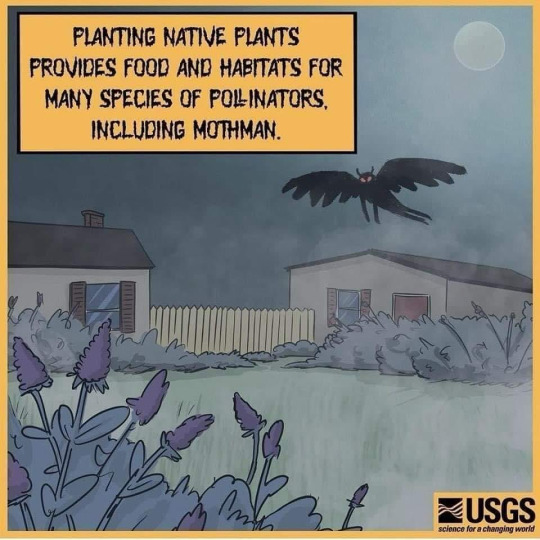
2K notes
·
View notes
Text



Silverleaf Sunflower or Helianthus argophyllus
#sunflower#silverleaf#helianthus argophyllus#pollinators#color#flower#flowercore#girasoles#cottagecore#greenery#pollen
1K notes
·
View notes
Text


Baby apples
I love watching these little ones grow.
1 note
·
View note
Text

Brazilian frog might be the first pollinating amphibian known to science
Nectar-loving tree frog likely moves pollen from flower to flower.
The creamy fruit and nectar-rich flowers of the milk fruit tree are irresistible to Xenohyla truncata, a tree frog native to Brazil.
On warm nights, the dusky-colored frogs take to the trees en masse, jostling one another for a chance to nibble the fruit and slurp the nectar. In the process, the frogs become covered in sticky pollen grains—and might inadvertently pollinate the plants, too.
It’s the first time a frog—or any amphibian—has been observed pollinating a plant, researchers reported last month in Food Webs...
Read more: https://www.science.org/content/article/brazilian-frog-might-be-first-pollinating-amphibian-known-science
3K notes
·
View notes
Text
society has ingrained in all of us that bugs are bad and evil and scary and they Bite You for no reason and Sting You For Fun and I would like to challenge every single person that reads this to try to step back and challenge those thoughts. CHALLENGE that knee-jerk reaction to kill every bug you see. REALIZE that killing it doesn't have to be the answer. it's fine to not want bugs in your home. but I see so many people whose FIRST choice is to kill it, even though it'd be easy to just cup it and toss it outside. why?
one of the greatest things that got me over my extremely intense arachnophobia was knowledge. learning more about the thing I was afraid of made me realize, "oh, they're just little guys trying to get by too" and I stopped killing every spider I saw.
and it's like. no, that wasp didn't sting you for fun. it stung you because it felt scared or defensive. no, the spider in your shower isn't trying to kill you. spiders need water to live too.
you don't deem a scared dog/cat evil for biting you, do you? then why are we demonizing insects and spiders for feeling scared? they are so, so small and we are so large. they don't know anything about us, they're just trying to live life. they didn't know they built their web in a bad spot. they didn't know they built their nest next to your door. please, show some kindness to these tiny creatures. I understand you can't let infestations happen or wasps build in your walls, but whenever possible, try to put bugs in a cup and take them outside. yes, even wasps. even black widows. if you want tips for safely capturing bugs, I'm always around to ask.
also, to those who say things like, "x bug eats other pest bug, so they're okay" why? why does something have to benefit you to deserve to live? shouldn't all creatures have a chance at life, even if they're ugly, even if they don't benefit you, even if they do something you don't like? what gives you the right to decide to take the life of any animal just because ahhh it looked scary? please. all I ask is you try to be kinder. it's okay to be scared, it's not okay to pointlessly kill things.
#michaelpost#bugs#insects#arthropods#something I've noticed is wasps get an EXTREME amount of hate and I'm honestly getting progressively more sick of it#and it always stems from just. untrue ideas people have about how wasps behave#and they'll throw in comments like oh they dont even pollinate like our Lovely Bees! yes they do.#and even if they didnt have any Use to you#why does that mean they dont deserve life?
1K notes
·
View notes
Text
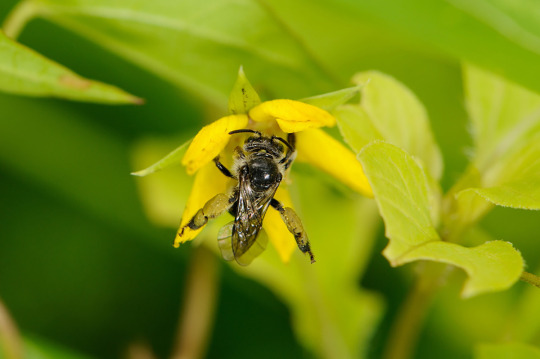
Xerces Society: Announcing The State Of The Bees Initiative: Our Plan To Study Every Wild Bee Species In The U.S.
This is really exciting news! For those unaware, the Xerces Society has been focusing on invertebrate conservation for over fifty years, and has pioneered a lot of the work to bring awareness to the devastating losses of not only insects but other terrestrial and aquatic invertebrates. It gets its name from the Xerces blue butterfly (Glaucopsyche xerces), the first North American butterfly driven to extinction by human activities.
Even if you haven't heard of the Xerces Society, you've probably come across various "Save the Bees!" campaigns. These frequently focus on the domesticated European honey bee (Apis mellifera), which, while it may be important to crop pollination in many parts of the world, is not a part of natural ecosystems in places like the Americas and Australia, and can be considered an invasive species at times. With the rise of colony collapse disorder (CCD) particularly after the turn of the 21st century, where entire domestic honeybee colonies would die off, the need to preserve bees began to gain wider public acknowledgement.
But what many people don't realize is that it is the thousands upon thousands of other native bee species worldwide that are in greater danger of extinction. They don't have armies of beekeepers giving them safe places to live and treating them for diseases and parasites. More importantly, where honey bees may visit a wide variety of plants, native bees often have a much narrower series of species they visit, and they are quite vulnerable to habitat loss. Most bees are not as social as honey bees and live solitary lives, unseen by the casual observer.
Invertebrates in general often suffer from a lack of conservation information, meaning that particularly vulnerable species may fly under the radar and risk going extinct without anyone realizing until it's too late. This ambitious program by the Xerces Society aims to solve that problem, at least for the 3,600+ species of bee in the United States. If they can assign a conservation status to each one, then that strengthens the argument toward protecting their wild habitats and working to increase their numbers. Hopefully it will also prompt more attention to other under-studied species that are in danger of going extinct simply because we don't know enough about them.
#bees#save the bees#invertebrates#arthropods#insects#entomology#nature#wildlife#animals#ecology#environment#conservation#science#scicomm#endangered species#extinction#pollinators#Xerces Society#Xerces blue
591 notes
·
View notes
Text

884 notes
·
View notes
Text
The AUDACITY of venus fly traps to expect pollinators to help them reproduce after spending all their time eating bugs
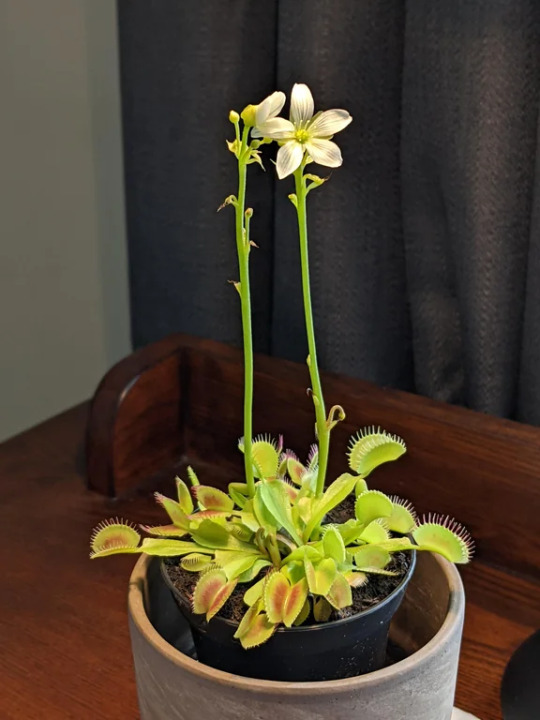
5K notes
·
View notes
Text
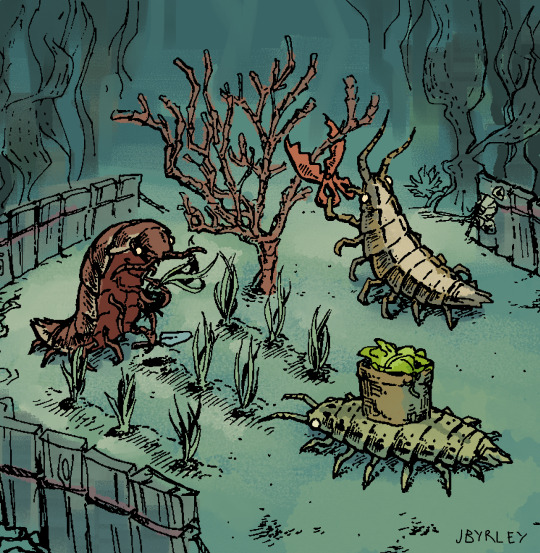
Happy Pollinator week to the Baltic Isopod, the first underwater pollinator discovered by science! Lab studies imply that their activities help pollinate seagrass and macroalgea. Is there anything isopods can't do?
10K notes
·
View notes
